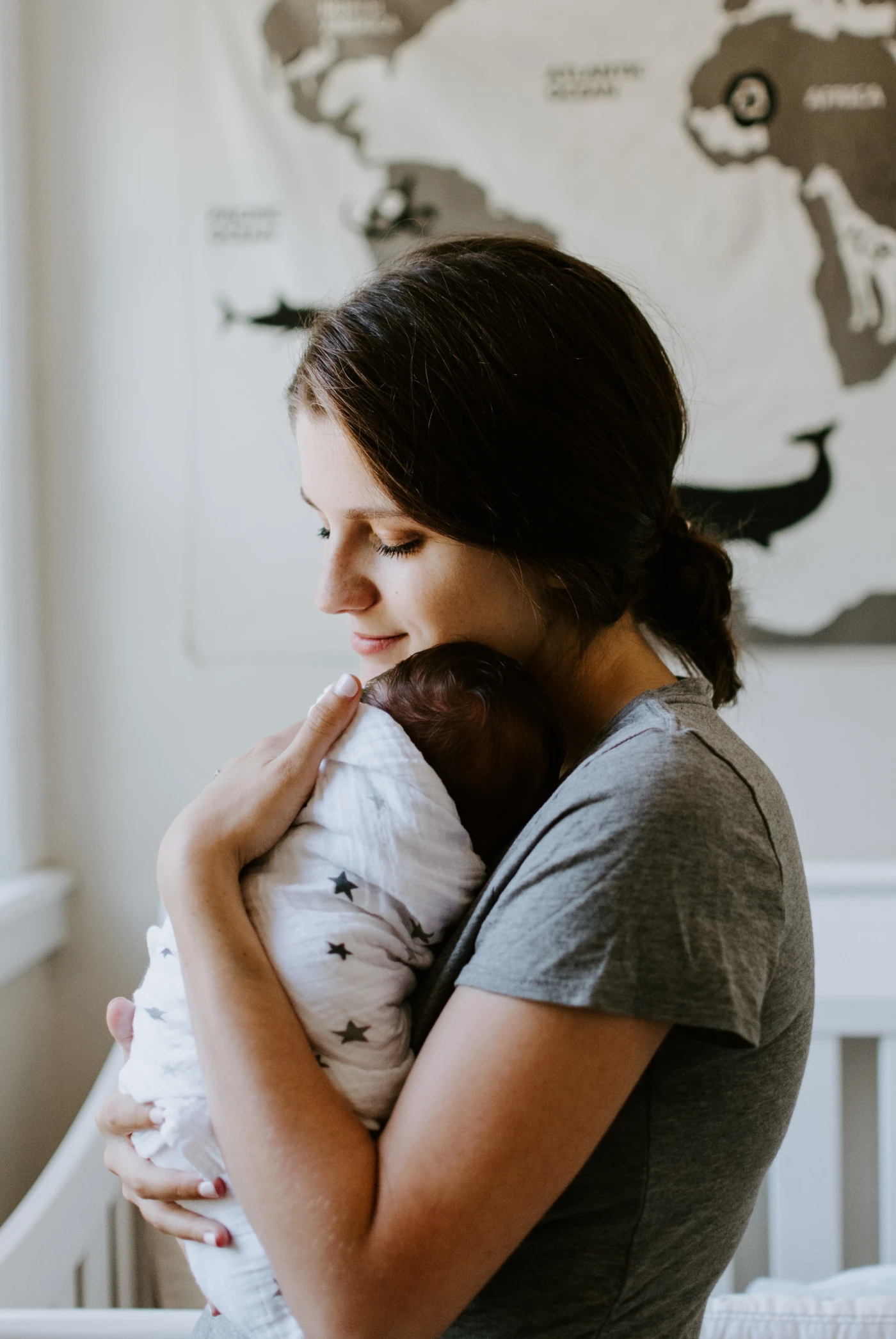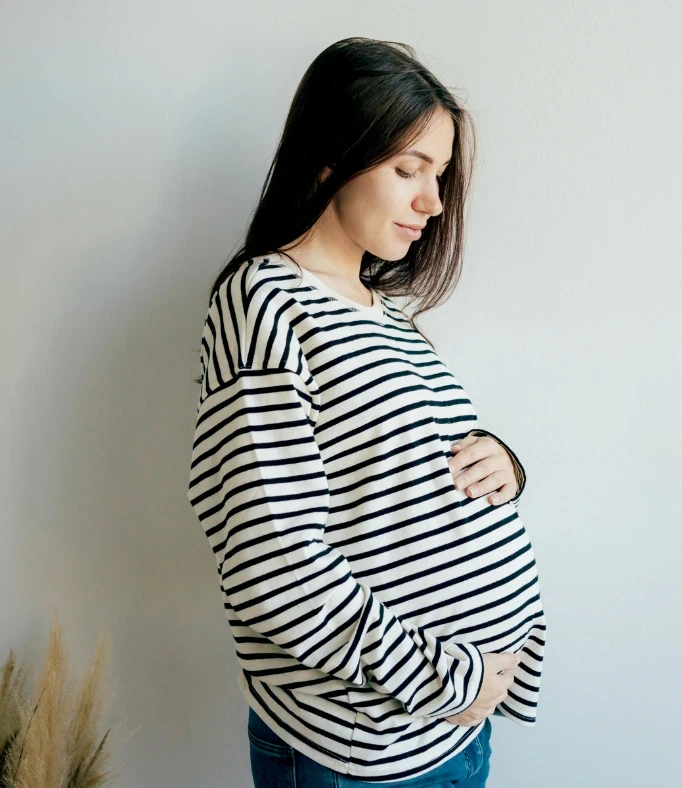What women should know about hormonal changes
Tufts of hair falling out in the sink - many women experience this after the birth of their child or during pregnancy. What are the causes and what can be done to prevent hair loss?
In the brush, on the pillow or on the floor: it can be a frightening experience when you find your own hair everywhere in your home during or after pregnancy. But first things first: the phenomenon is usually only temporary and has no lasting consequences. But what are the causes and what could help?
Caring for the foetus changes the body's entire hormone levels, including the production of significantly more oestrogen during pregnancy. This keeps the hair follicles in the growth phase for longer and therefore increases the lifespan of the hair. As a result, many women even experience their hair as fuller and healthier during pregnancy. However, certain influences can have the opposite effect even during this time.

Iron deficiency can lead to hair loss, especially in the second half of pregnancy. This can be measured in the blood during gynecological check-ups and treated with iron supplements.
The lack of vitamins B, C, E, biotin and the mineral zinc also impairs hair growth. However, additional supplements should only be taken if a deficiency is proven.
During pregnancy, there is a higher incidence of hyperthyroidism or hypothyroidism, which promotes hair loss. Diagnosis is based on blood values and ultrasound.
Constant stress impairs the nutrition of the hair root. This also applies to psychological challenges during pregnancy. Clarifying discussions with the midwife combined with relaxation techniques are then among the first steps to relieve stress.

Even during the first trimester of pregnancy, the scalp and hair structure can react unpleasantly, irritably or not at all to previous hair care products due to hormones. Pregnant women can relieve this by switching to gentle hair products for sensitive scalps and not combing their hair too often.
After birth, the oestrogen level drops suddenly and rapidly. As a result, the hair follicles are increasingly transferred from the growth phase (anagen phase) to the resting phase (telogen phase). As a result, many women notice severe hair loss - sometimes shortly after giving birth, in other cases only three to five months later. Although the so-called postpartum effluvium (increased hair loss after giving birth) is natural and reversible, it is stressful for many women.
Some women feel exhausted after giving birth and breastfeeding. When their hair starts to fall out, they often think it is due to a lack of nutrients caused by breastfeeding. But even in breastfeeding women, the cause of hair loss is usually due to hormonal changes. It just starts later on average than in mothers who stop breastfeeding soon after giving birth.
Damaging external influences such as hot hairdryer air, straightening irons or constant combing should be avoided as far as possible to prevent stressing the hair.
Foods rich in minerals and vitamins strengthen the hair structure.
Mild, gentle and invigorating hair care products ensure that the scalp does not dry out and is revitalized.
The use of thymus peptides (e.g. Thymuskin) is also effective in cases of hormonal hair loss, prolongs the growth phase and stimulates the formation of new hair.
Sufficient sleep and relaxation ensure healthy regeneration of the entire organism and better nutrition of the hair root.
In around two out of every thousand women, hair loss after giving birth or during pregnancy can concentrate on individual areas of the head ("circular hair loss") and lead to clearly visible bald patches. In this case, the cause and possible treatment should be clarified by a specialist.
The products in the Thymuskin Sensitive line in particular are also suitable for use during pregnancy or breastfeeding, as well as for children from the age of 3. All Thymuskin shampoos can be used in this context without hesitation.


Hair loss? Write to us!
Thymuskin offers you a realistic assessment of your personal situation - even before you buy.
" I was also pleased with the intensive personal advice I received here. This helped me to work through the discouraging phases that occurred from time to time. Thank you very much! "
Gabriele T., Thymuskin customer
Hair loss all over the head
This is an increased hair loss in the area of the entire hairy head.
Overview of the most common causes of hair loss in women and the criteria by which they can be classified.